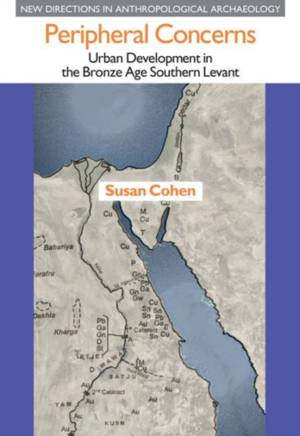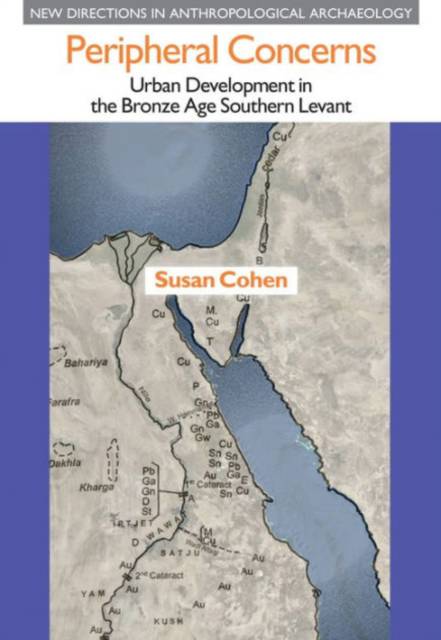
- Retrait gratuit dans votre magasin Club
- 7.000.000 titres dans notre catalogue
- Payer en toute sécurité
- Toujours un magasin près de chez vous
- Retrait gratuit dans votre magasin Club
- 7.000.0000 titres dans notre catalogue
- Payer en toute sécurité
- Toujours un magasin près de chez vous
Description
Peripheral Concerns examines the influence of one "core" region of the ancient Near Eastern world--Egypt--on urban development in the southern Levant in the Early and Middle Bronze Ages, with emphasis on the relative stability and sustainability of this development in each era. The study utilizes a very broad scale "macro" approach to examine urban development using core-periphery theories, specifically in regard to southern Levantine-Egyptian interactions.
While many studies examine urban development in both the Early Bronze Age and the Middle Bronze Age, few compare this phenomenon in the two periods. Likewise, there are few studies of urban development in the southern Levant that compare contemporary Egyptian policies in that region to those in Nubia, despite the fact that Egyptian activities linked the eastern Mediterranean, the Nile Valley, and Nubia into one interactive system. The broad chronological and geographic framework utilized in this study therefore allows for a new approach to urban development in the southern Levant.
Spécifications
Parties prenantes
- Auteur(s) :
- Editeur:
Contenu
- Nombre de pages :
- 256
- Langue:
- Anglais
- Collection :
Caractéristiques
- EAN:
- 9781781791776
- Date de parution :
- 02-03-16
- Format:
- Livre relié
- Format numérique:
- Genaaid
- Dimensions :
- 188 mm x 249 mm
- Poids :
- 621 g

Les avis
Nous publions uniquement les avis qui respectent les conditions requises. Consultez nos conditions pour les avis.






